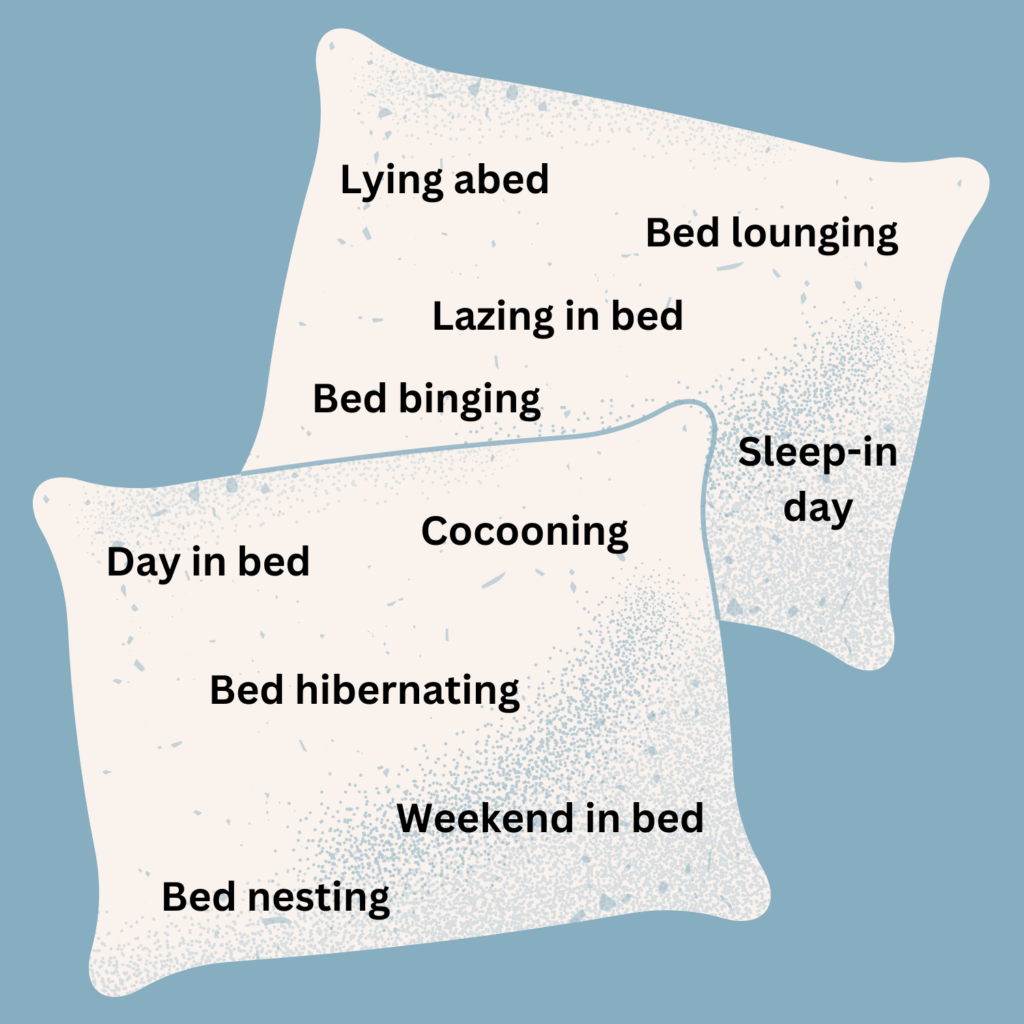Bed Rotting…New Trend, Old Concept
Have you heard of bed rotting?
Sounds gross, doesn’t it?
Whether or not you’ve heard the trendy phrase, you are surely familiar with the notion. Maybe you’ve even done it.
According to Health.com:
“A booming new trend sweeping TikTok involves staying in bed for
extended periods—not to sleep, but to do passive activities
like eating snacks, watching TV, and scrolling through devices.
The fad has been dubbed ‘bed rotting.’ ”
It’s not a new concept. Plenty of us have either done it or fantasized about doing it.
I don’t think I’ve ever spent an entire day in bed unless I’ve been really ill. But I have stayed home all day or all weekend, lounging on the sofa reading…napping…watching TV. That might qualify. Sofa rotting? Just plain rotting, maybe?
Blech – I still don’t like that term.
Bed Rotting – Good or Bad?
There’s controversy swirling around this practice. Is it unproductive self-indulgence? Is it necessary self-care? Is it depressive behavior? Is it recharging and rejuvenating?
We’ll leave the science to the experts. And we’ll leave individual results to each person. Only you know whether you feel better or worse after a bed rotting session.
What we’re most interested in is whether bed rotting is a detriment to good sleep.
If you spend the entire day or weekend in a darkened room, your circadian rhythm may be affected. Light and dark are important external cues influencing our biological clocks. If your eyes, and even your skin, don’t experience bright light, your circadian rhythm may become “confused.” It won’t be able to help you by signaling sleepiness and alerting you that it’s time for a full night of sleep.
Your circadian rhythm and activity levels during a normal day also help regulate your sleep drive. According to Scientific American:
“Sleep drive builds throughout the day, compounded by activity
and exercise. Come nighttime, you should feel ready to snooze.
But staying in bed for too long can throw your sleep drive out
of whack, pushing back your sleepiness window. And a day
of lying around probably means there’s no physical activity
to help build sleep drive.”
Another factor affecting sleep is that your regular habits and routines provide physical and psychological cues about what time it is and what your normal behavior is at those times every day.
You eat breakfast a half hour after you wake up every day? You’ll feel hungry, or at least want to eat at that time.
It’s the same with your normal evening routine. If you read or watch TV in the evenings after dinner, you probably get sleepy at some point. Of course, this is due to your actual sleep drive and inactivity relaxing you, but it’s also likely because the cues of sitting still, perhaps in a darkened room, also tell you that it’s time to get sleepy and soon to go to bed.
If you’re ‘rotting’ in bed all day, you won’t have the normal light and dark signals, the activity that increases your body’s physical need for rest, or the routine cues that help you with your sleep-wake process.
That being said, spending an extended time relaxing – whether in bed or not – may sometimes be exactly what your mind and body need. Each of us must decide for ourselves what makes us feel our best.
If you’re burned out, exhausted, and want to completely check out, bed rotting may be just the thing you need.
But guess what…you don’t have to call it that. Blech!


